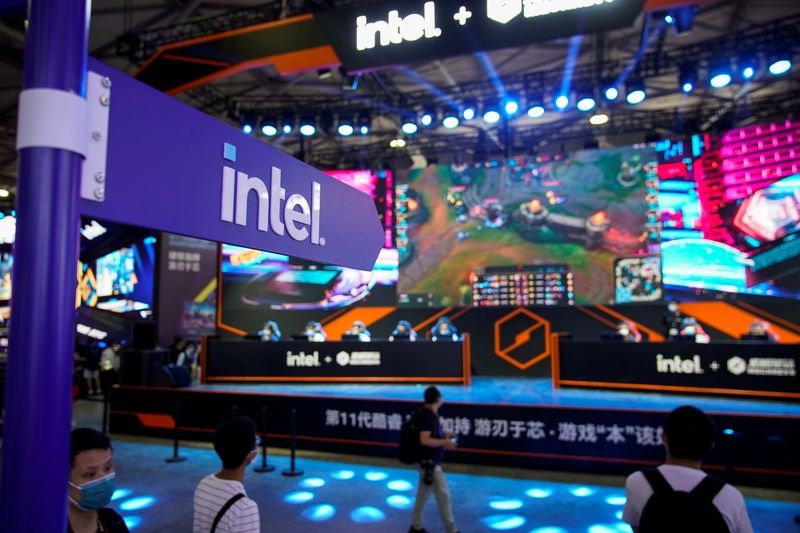© Reuters. FILE PHOTO: A smartphone with a displayed Intel logo is placed on a computer motherboard in this illustration taken March 6, 2023. REUTERS/Dado Ruvic/Illustration/File Photo
By Stephen Nellis
(Reuters) – Intel Corp (NASDAQ:) and Boston Consulting Group on Wednesday said they are working together to sell generative artificial intelligence tools to big businesses.
Generative AI is the class of technology behind popular chatbots like OpenAI’s ChatGPT that can reply to queries with human-like text. Google owner Alphabet (NASDAQ:) Inc and Microsoft Corp (NASDAQ:) are revamping their search engines with AI technology to provide answers to questions rather than lists of links.
Boston Consulting Group (BCG) and Intel worked together on similar technology so that BCG’s employees could put the group’s half century worth of archives – much of which is in the form of reports and presentations – to better use. Previously, BCG employees conducted a keyword search and had to click through each document to see whether it contained what they were looking for.
With the new system, the AI system can answer employees’ questions using the archive or summarize entire documents.
“We’re in the knowledge business and the expertise business. Rarely are we just looking for one piece of something on the page,” said Suchi Srinivasan, a managing director and partner at BCG.
The system was developed on a supercomputer built by Intel with its Xeon central processors and Habana AI chips. Intel built the supercomputer and software so that BCG did not have to share its data with Intel.
“The number of times Intel actually saw that data is zero,” said Kavitha Prasad, Intel’s vice president and general manager of data center, AI and cloud execution and strategy.
Intel and BCG said they plan to start selling some of the technology they have developed to help other companies to train AI systems using the customer’s proprietary data, without having to share it with Intel or BCG. Srinivasan said the two will target industries like financial services, which have strict rules over data storage and sharing.
Read the full article here




